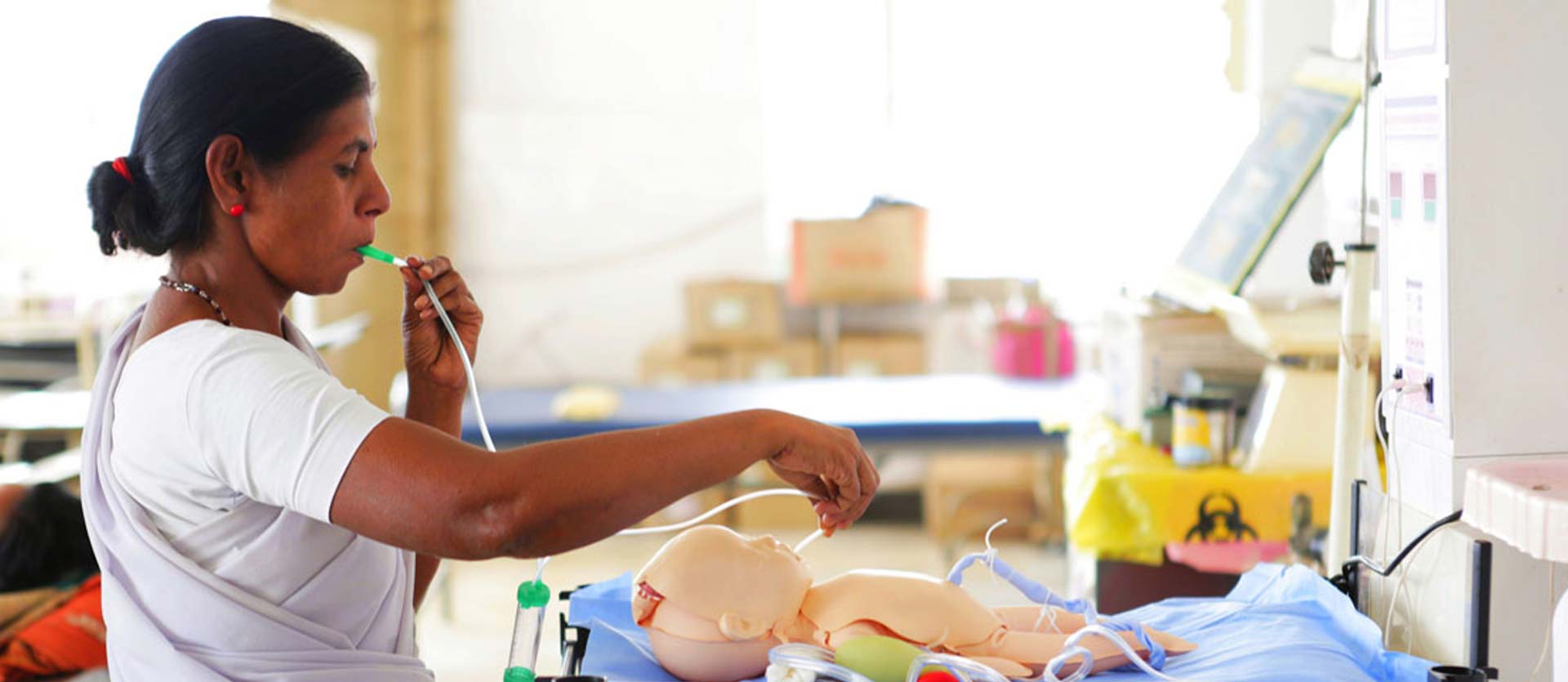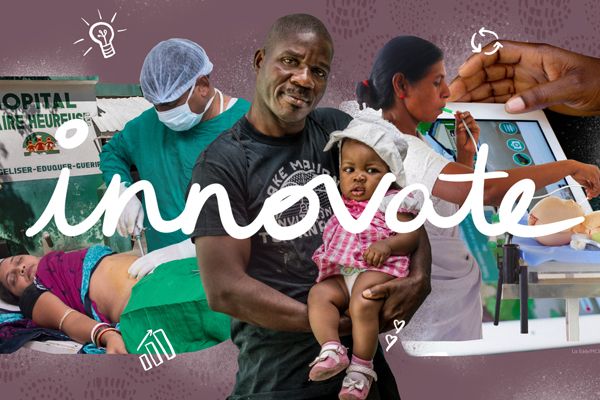![]()
Innovations
Closing gaps in health service coverage, quality and equity requires the conceptualization, testing and implementation of innovative business and organizational models, operational or production processes, products, and services to prevent childhood and maternal deaths. Innovation helps low- and middle-income countries rapidly make progress towards reproductive, maternal, newborn, child and adolescent health and development targets.
MCSP was a vital contributor to the global movement to prevent newborn, child and maternal deaths. The Program used USAID’s definition of innovation, which includes both product and process innovations:
“Novel business or organizational models, operational or production processes, or products or services that lead to substantial improvements in executing against development challenges. Innovations are not limited to products, drugs, or diagnostics, but could also include a novel approach or application of a technology, service or intervention.”
MCSP was built on work started under USAID’s predecessor Maternal and Child Health Integrated Program (MCHIP) to continue supporting expansion of the evidence base for innovative approaches, and facilitating locally-owned and context-sensitive adaptation of these life-saving innovations.
The Program focused on implementation of six priority innovations:
Product Innovations
- Uterine Balloon Tamponade: In settings without timely access to high-quality comprehensive emergency obstetric and newborn care, the uterine balloon tamponade can be lifesaving when other interventions fail to stop postpartum hemorrhage (PPH).
- Bubble Continuous Positive Airway Pressure: This strategy provides low-income countries with a simple, low-cost method of reducing the 20-38% percent of neonatal deaths due to respiratory failure.
Process Innovations
- Reaching Every Community / Quality Improvement: Addressing equity gaps among communities is essential to improving national coverage of routine immunization. Building on the globally accepted Reaching Every District strategy, Reaching Every Community / Quality Improvement focuses on equitable coverage via quality improvements processes, data-driven strategies, and ownership at the local level.
- Possible Serious Bacterial Infections Guidelines: Making antibiotic treatment simpler, easier to access, and more acceptable to families in resource-limited settings would dramatically reduce the nearly 420,000 annual newborns deaths due to infections every year. These guidelines provide community health workers with evidence-based recommendations to identify serious infections and to use simple, safe and effective antibiotics rather than solely resorting to referral of hospital treatment.
- First Time/Young Parents: Programs that neglect young parents and adolescent reproductive health can integrate the MCSP First Time/Young Parent Model into health systems, improving the quality of health services necessary to prevent the 16 million unintended pregnancies among girls 15-19 years of age each year. For part of the Model, MCSP adapted Save the Children’s My First Baby Guide to improve maternal and neonatal outcomes of married, pregnant and parenting adolescents. One of the most significant adaptations was to approach first-time parenting with a gender-focused lens to increase male involvement and couples communication, and address gender norms.
- Gestational Age Estimation: Precise estimation of gestational age and estimated date of delivery—regardless of resource level—facilitate appropriate birth planning and complication readiness. They also improve the capacity to provide appropriate, time-sensitive interventions for improving maternal and newborn outcomes in the context of both antenatal and intrapartum care.
Our ultimate goal was to have MCSP-supported countries contribute to progress related to each — from development and introduction of these innovations, to full scale-up.


